Dolphins and a Tomato Garden
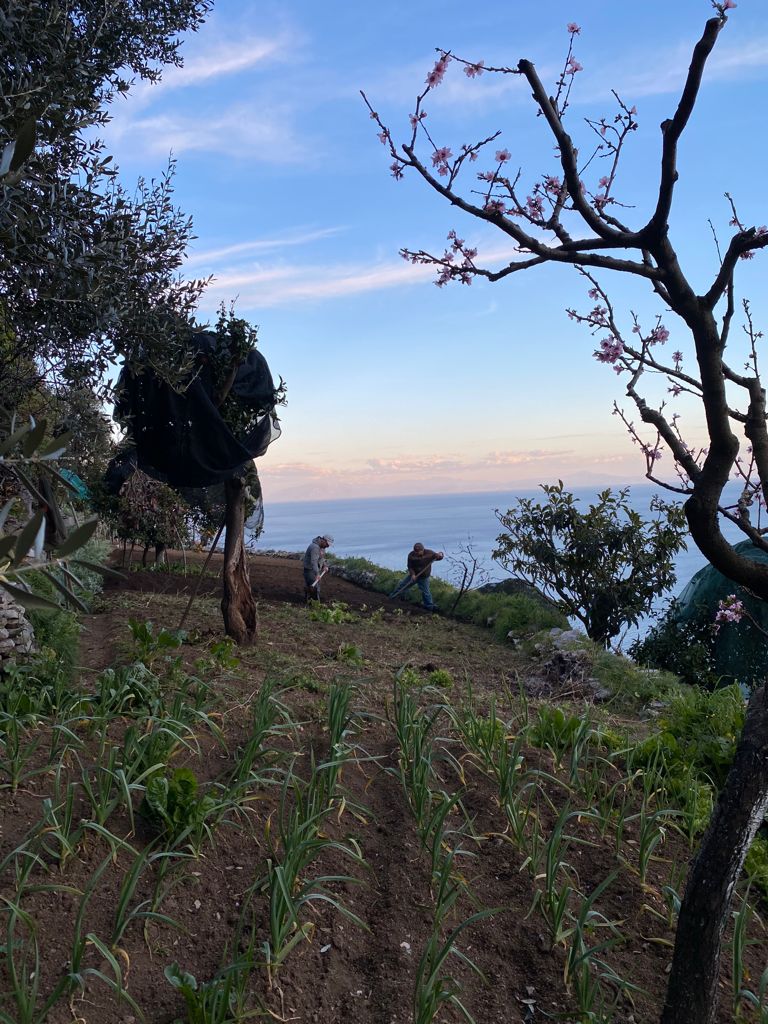
In Venice yesterday, at 7 AM, for the first time in recent memory, a pair of bottlenose dolphins gambolled in the Basin of St Mark. Venice of course, like nearly all of Italy, is stilled by COVID-19 lock-down. (Fauna photos that circulated last year were fakes, alas — but this time the remarkable event is real.) The two dolphins were photographed at the entrance to the Grand Canal, just off a promontory called Punta della Dogana, a few hundred yards from St Mark’s Square. Worldwide, there is curiosity to view the magical spectacle as filmed by the lucky Venetians who were there.
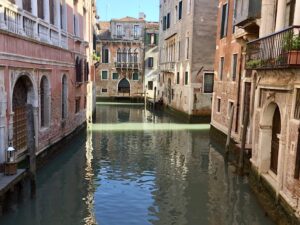
Might this be a wake up call for Venice’s mayor, this broad international interest in what happens when man relents his assaults on a fragile natural environment ? In office now for six years, the mayor is a populist right-wing entrepreneur who lives on the mainland. He has actively encouraged Venice to function as a mono-economy, with an income that is entirely reliant on tourism, and without any realistic, sustainable plan that prioritizes the protection of one of the world’s most threatened natural and urban environments.
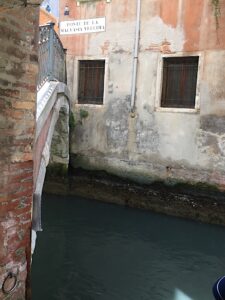
Nearly gone are the social ties that once were central to Venetians; the street and neighborhood life; the vibrant artisan trades. Intensive use of vaporetti (public water boats) and water taxis place a severe stress on the city’s delicate urban structure, and inhibit entirely the return of any form of natural ecology in the Lagoon or city canals.
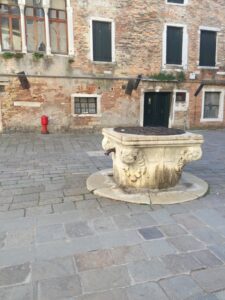
In the spring of 2021, Venice is on its knees in a financial and emotional depression that is devastating.
Venice, founded on March 25, 421.
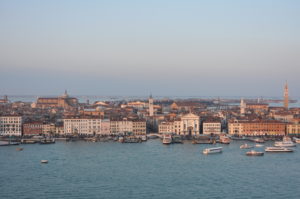
If there is ever to be a turning point, surely that time is now.
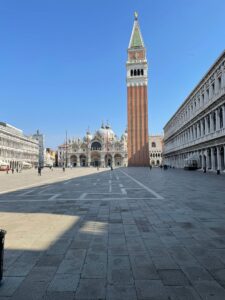
My own dream, encouraged by the sight of the dolphins, is a courageous and visionary new tact : that Venice becomes a city of diverse economy, with tourism reduced to a minority percentage, say 25%.
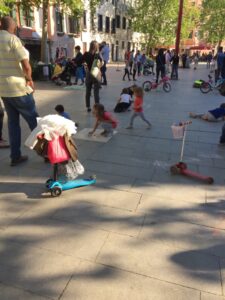
That Venice would be a living city of residents of various ages (at present the slender local population is largely middle aged and older, often much older); of educational and cultural institutions Italian and international, both for-profit businesses and non-profit institutions; a city of free-lance writers, artists, artisans, musicians and others whose lives are dedicated to enhancing the world.
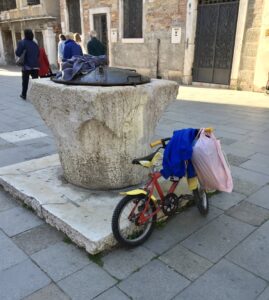
And most of all, the first city in the world that is focused on the study (from the front lines) of environment, global warming and climate change.
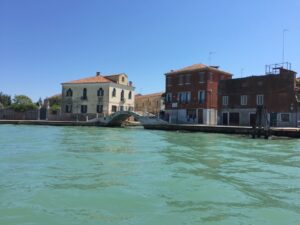
The dolphins….
Historically, Venice has been a city of extraordinary minds and remarkable cultural institutions. With Venice’s mono-economy lying wasted, a fatality of COVID-19, the mayor must listen carefully to Venetians themselves, and work for and with them in determining a transformative, sustainable vision for the Venice of the 21st century.
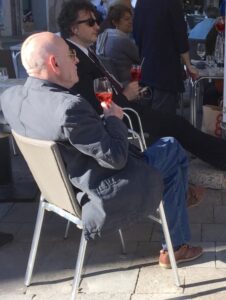
Please know that when you do return to Venice, we will double our commitment to both you and to Venice to make your visit as environmentally sensitive as we possibly can. There is no place in Italy where we are more conscious of urban and ecological fragility.
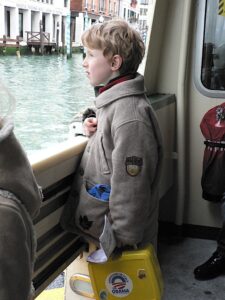
Meanwhile, 500 miles away on the Amalfi Coast, our friends Giocondo and Michelone have just completed their task of preparing the land for the tomato garden. Michelone farms entirely in the old style. His tomatoes, like all of his vegetables, sing with flavor; this not only because they are heirloom varieties grown carefully from seed but also because the earth that supports them has been nourished with such care. A visit to Michelone’s garden is easy to arrange, as is one of the equally magnificent ones of Cristina and Mena, both of whom offer home cooking classes to our travelers.
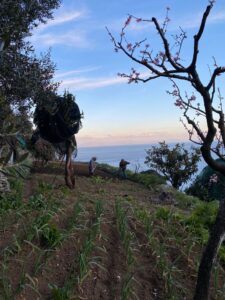

Meet Marjorie
Insider’s Italy is an experienced family business that draws on my family’s four generations of life in Italy. I personally plan your travels. It is my great joy to share with you my family’s hundred-year-plus archive of Italian delights, discoveries and special friends.
